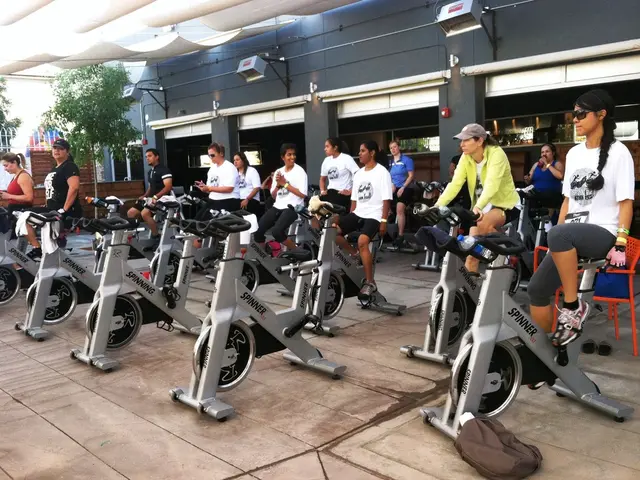High blood sugar hinders fitness efforts
Scooting off your behind after a long spell of couch potato life and into the world of exercise? Welcome to a world where every breath could be a struggle, your body could be a sweaty mess, and your muscles could ache like hell. But don't fret, this torturous journey towards fitness has a light at the end of the tunnel.
After a while, your aerobic exercise habits will gradually modify your muscle fibers, making them more proficient at using oxygen during exercise, subtlety reducing the intensity of the pain. Exercise also triggers the growth of new blood vessels, ensuring that more oxygen gets delivered to your muscle cells - a boon for your overall aerobic fitness.
However, there could be an obstacle lurking in your way if you're aiming for better aerobic fitness - high blood sugar levels.
New research suggests that high blood sugar can hamper your body's ability to adjust to aerobic exercise, making it harder for those who need it the most.
Researchers from Joslin Diabetes Center discovered that high blood sugar makes aerobic exercise an even more of an uphill battle than it usually is.
In a study, they tested the impact of high blood sugar on the aerobic fitness of mice. They induced high blood sugar in one group of mice by feeding them a junk food diet, and in another group by altering their bodies to produce less insulin.
Both groups of mice then performed an aerobic exercise training protocol where they ran in wheels in their cages. By the end of the study, these mice had clocked over 300 miles in total. Yet their aerobic exercise capacity didn't improve as much as mice with normal blood sugar levels.
Why? Well, when researchers examined the muscles of these mice, they found that their muscles weren't adapting to aerobic exercise the way muscles usually do. Normal aerobic exercise causes muscles to remodel themselves, enhancing efficiency and delivering more oxygen to the muscles.
But in the case of mice with high blood sugar, this transformation just didn't happen. Researchers believe that high blood sugar modifies the "extracellular matrix" proteins in the space between the muscle cells, where blood vessels are formed. This prevents the muscle changes that normally occur.
Researchers also found that high blood sugar seemed to impair communication within the "JNK" signaling pathway, a critical molecular switch telling muscle cells how to adapt. In the case of mice with high blood sugar, this pathway told the mice's muscles to adapt to strength training even though they were doing aerobic exercise, meaning their muscles weren't prepared for the type of exercise they were undertaking.
Researchers followed up on this research in human participants, finding that young adults with higher blood sugar levels after ingesting glucose had the lowest aerobic exercise capacity.
"Looking at how their muscles responded to a single bout of typical aerobic exercise, we also saw that those with the lowest glucose tolerance had the highest activation of the JNK signaling pathway, which blocks aerobic adaptations," says study researcher Sarah Lessard.
But don't lose hope if you have high blood sugar! Aerobic exercise still offers numerous benefits, even if you find it harder. You can help your body adapt by sticking with your exercise routine and adopting a diet that helps lower your blood sugar levels.
Take a good look at various diets like the biological clock diet, Mediterranean diet, low-carb diets, and the super low-cal diet. Choose the one you think you can stick to, so you can balance your blood sugar and make those oh-so-important aerobic workouts a little less excruciating.
- High blood sugar can hamper the body's ability to adapt to aerobic exercise, making it more challenging for those who need fitness improvement the most.
- In a study, researchers found that high blood sugar seems to impair communication within the JNK signaling pathway, a critical molecular switch telling muscle cells how to adapt, making it difficult for muscles to properly respond to aerobic exercise.
- A diet that helps lower blood sugar levels, such as the Mediterranean diet or low-carb diets, can assist in making aerobic workouts less excruciating by allowing the body to adapt better to exercise.






